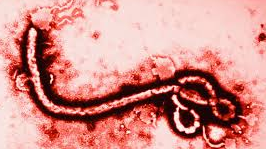Recently, the Paul G Allen Family Foundation has announced commitments that total $6.6 million to address the logistical and transport needs for an extensive relief campaign to fight the Ebola outbreak currently occurring in West Africa. This funding includes a $3.6 million matching grant to the US Fund for UNICEF that will allow UNICEF to airlift 50,000 protection kits into Liberia to help prevent the virus’ spread among caretakers and family members, as  well as provide nearly 2,400 community health volunteers with the necessary resources to educate their communities about how to effectively prevent infection. A $3 million partnership with the disaster and humanitarian response organization with Airlink will support regular air deliveries of medical protective gear and pharmaceuticals to West Africa over the next several months. With these latest commitments, the Allen Foundation has committed over $20 million to fighting the disease, including $9 million to the CDC Foundation and $2.8 million to the American Red Cross.
well as provide nearly 2,400 community health volunteers with the necessary resources to educate their communities about how to effectively prevent infection. A $3 million partnership with the disaster and humanitarian response organization with Airlink will support regular air deliveries of medical protective gear and pharmaceuticals to West Africa over the next several months. With these latest commitments, the Allen Foundation has committed over $20 million to fighting the disease, including $9 million to the CDC Foundation and $2.8 million to the American Red Cross.
This Ebola outbreak, even larger than the one in the 1970s, requires dedication and dogged determination to ensure that its spread is halted. While effectively tackling Ebola can definitely be done, it still requires a global effort to do so, and time is of the essence before the disease spreads to other areas. In other areas, the Open Society Foundations has awarded $4 million to a project led by Partners in Health co-founder Paul Farmer to open a treatment facility in rural Liberia to help increase survival rates and prevent the virus’ spread. The fatality rate of Ebola has historically been about 90 percent, but the fatality rate in this specific outbreak is closer to 50. In partnership with local organizations, Farmer’s project will send teams of health workers to different communities to identify the illness, bring in patients for treatment and track those who might have been exposed to the virus.
While these efforts are commendable, some people believe that they’re too little, too late. According to the UN, documented contributions from foundations and donor countries totaled $326.7 million as of Monday, far lower than the minimum of $600 million that the UN estimates is needed to halt the virus’ spread, and only $26 million had been committed before August. The majority of the funds weren’t even pledged until early September. Yesterday, President Obama unveiled a response plan that includes $263 million in government funding to send additional workers to those areas that have been affected, support the development of Ebola vaccines and deploy three thousand military personnel to the area. The World Bank Group has also announced grants that total $105 million as part of the $200 million that it announced back in early August.